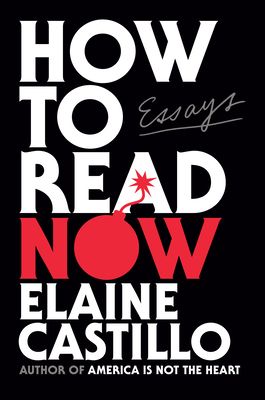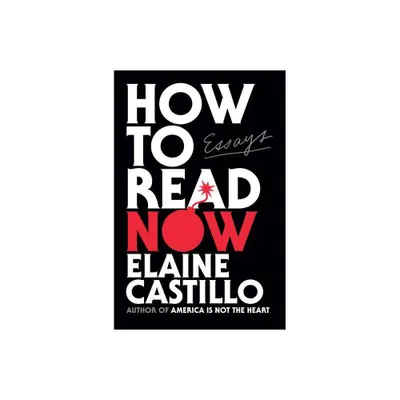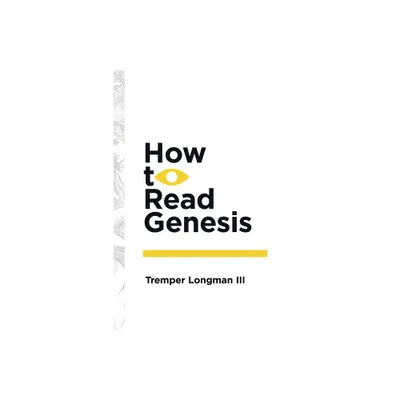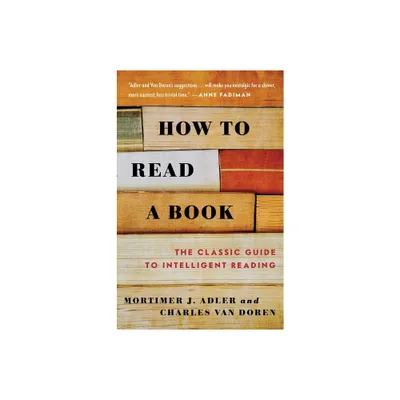Home
How to Read Now: Essays
Loading Inventory...
Barnes and Noble
How to Read Now: Essays
Current price: $20.00


Barnes and Noble
How to Read Now: Essays
Current price: $20.00
Loading Inventory...
Size: Audiobook
*Product Information may vary - to confirm product availability, pricing, and additional information please contact Barnes and Noble
“
How to Read Now
explores the politics and ethics of reading, and insists that we are capable of something better: a more engaged relationship not just with our fiction and our art, but with our buried and entangled histories.”
“A book that doesn’t seek to shut down the current literary discourse so much as shake it up.” (
The New York Times Book Review
) Offering “its audience the opportunity to look past the simplicity we’re all too often spoon-fed into order to restore ourselves to chaos and complexity — a way of seeing and reading that demands so much more of us but offers even more in return." (
Los Angeles Times
)
"I gasped, shouted, and holler-laughed while reading these essays from the phenomenal Elaine Castillo. What powerful writing, what a rigorous mind. For as long as I live, I want to read anything Castillo writes, and you probably do, too." —R.O. Kwon, author of
The Incendiaries
How many times have we heard that reading builds empathy? That we can travel through books? How often have we were heard about the importance of diversifying our bookshelves? Or claimed that books saved our lives? These familiar words—beautiful, aspirational—are sometimes even true. But award-winning novelist Elaine Castillo has more ambitious hopes for our reading culture, and in this collection of linked essays, “she moves to wrest reading away from the cotton-candy aspirations of uniting people in empathetic harmony and reposition it as thornier, ultimately more rewarding work.” (
Vulture
explores the politics and ethics of reading, and insists that we are capable of something better: a more engaged relationship not just with our fiction and our art, but with our buried and entangled histories. Smart, funny, galvanizing, and sometimes profane, Castillo attacks the stale questions and less-than-critical proclamations that masquerade as vital discussion: reimagining the cartography of the classics, building a moral case against the settler colonialism of lauded writers like Joan Didion, taking aim at Nobel Prize winners and toppling indie filmmakers, and celebrating glorious moments in everything from popular TV like
The Watchmen
to the films of Wong Kar-wai and the work of contemporary poets like Tommy Pico.
At once a deeply personal and searching history of one woman’s reading life, and a wide-ranging and urgent intervention into our globalized conversations about why reading matters today,
empowers us to embrace a more complicated, embodied form of reading, inviting us to acknowledge complicated truths, ignite surprising connections, imagine a more daring solidarity, and create space for a riskier intimacy—within ourselves, and with each other.
How to Read Now
explores the politics and ethics of reading, and insists that we are capable of something better: a more engaged relationship not just with our fiction and our art, but with our buried and entangled histories.”
“A book that doesn’t seek to shut down the current literary discourse so much as shake it up.” (
The New York Times Book Review
) Offering “its audience the opportunity to look past the simplicity we’re all too often spoon-fed into order to restore ourselves to chaos and complexity — a way of seeing and reading that demands so much more of us but offers even more in return." (
Los Angeles Times
)
"I gasped, shouted, and holler-laughed while reading these essays from the phenomenal Elaine Castillo. What powerful writing, what a rigorous mind. For as long as I live, I want to read anything Castillo writes, and you probably do, too." —R.O. Kwon, author of
The Incendiaries
How many times have we heard that reading builds empathy? That we can travel through books? How often have we were heard about the importance of diversifying our bookshelves? Or claimed that books saved our lives? These familiar words—beautiful, aspirational—are sometimes even true. But award-winning novelist Elaine Castillo has more ambitious hopes for our reading culture, and in this collection of linked essays, “she moves to wrest reading away from the cotton-candy aspirations of uniting people in empathetic harmony and reposition it as thornier, ultimately more rewarding work.” (
Vulture
explores the politics and ethics of reading, and insists that we are capable of something better: a more engaged relationship not just with our fiction and our art, but with our buried and entangled histories. Smart, funny, galvanizing, and sometimes profane, Castillo attacks the stale questions and less-than-critical proclamations that masquerade as vital discussion: reimagining the cartography of the classics, building a moral case against the settler colonialism of lauded writers like Joan Didion, taking aim at Nobel Prize winners and toppling indie filmmakers, and celebrating glorious moments in everything from popular TV like
The Watchmen
to the films of Wong Kar-wai and the work of contemporary poets like Tommy Pico.
At once a deeply personal and searching history of one woman’s reading life, and a wide-ranging and urgent intervention into our globalized conversations about why reading matters today,
empowers us to embrace a more complicated, embodied form of reading, inviting us to acknowledge complicated truths, ignite surprising connections, imagine a more daring solidarity, and create space for a riskier intimacy—within ourselves, and with each other.


















